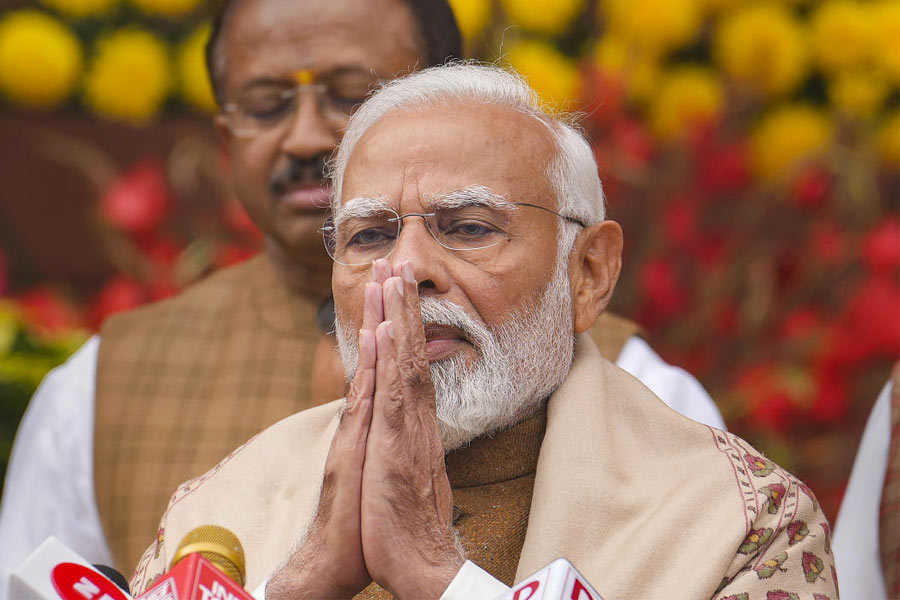Elected dispensations have often used the Bharat Ratna to not only reward one of their own but also co-opt those outside their fold. The conferring of the nation’s highest civilian award on L.K. Advani and Karpoori Thakur must be seen in this light. Mr Advani’s role in the BJP deepening its footprint on India’s electoral turf and its body politic is undeniable. But the award is bound to dredge up Mr Advani’s chequered legacy. After all, the roots of the troubling fusion of faith with politics — the Ram mandir’s centrality to the BJP’s electoral outcomes, past and present, bears evidence — began with Mr Advani’s polarising rath yatra. There has been an attempt to describe the decision to honour Mr Advani as an example of Narendra Modi’s magnanimity towards his mentor. Mr Modi’s political ascendancy would not have been possible without Mr Advani’s support. For instance, he saved Mr Modi from the ignominy of being sacked as Gujarat chief minister by the former prime minister, A.B. Vajpayee, who was aggrieved by Mr Modi’s failure — unwillingness? — to stem the violence in that state. But politics is not the altar of altruism. The claims of magnanimity notwithstanding, Mr Modi’s instrumental use of Mr Advani is a matter of public accord. In his twilight years, the latter was dishonourably dropped from the BJP’s parliamentary board, shunned to the benign margdarshak mandal, and even denied a Lok Sabha ticket in 2019 — all under Mr Modi’s watch. Mr Modi’s uncharitable gurudakshina to his guru can be attributed to Mr Advani’s resistance to Mr Modi being the BJP’s choice of the prime ministerial candidate in 2014. The Ram temple’s inauguration is now integral to Mr Modi’s campaign to win a third term in office. Little wonder then that Mr Advani, the architect of the Ayodhya chapter, has dawned on the prime minister’s consciousness.
The choice of Mr Thakur, a socialist icon, as a recipient along with Mr Advani is also suggestive of the BJP’s deft political acumen. Honouring him would help the BJP curate a careful balancing act between the themes of mandir and Mandal. This blending of the themes of social justice, of which Mr Thakur was a champion, and Hindutva, if it does succeed, would not only be a formidable political strategy to mobilise disparate vote blocs but also blunt the Opposition’s attempts to weaken the appeal of majoritarian Hindutva with a counter-mobilisation of India’s disadvantage social groups.










